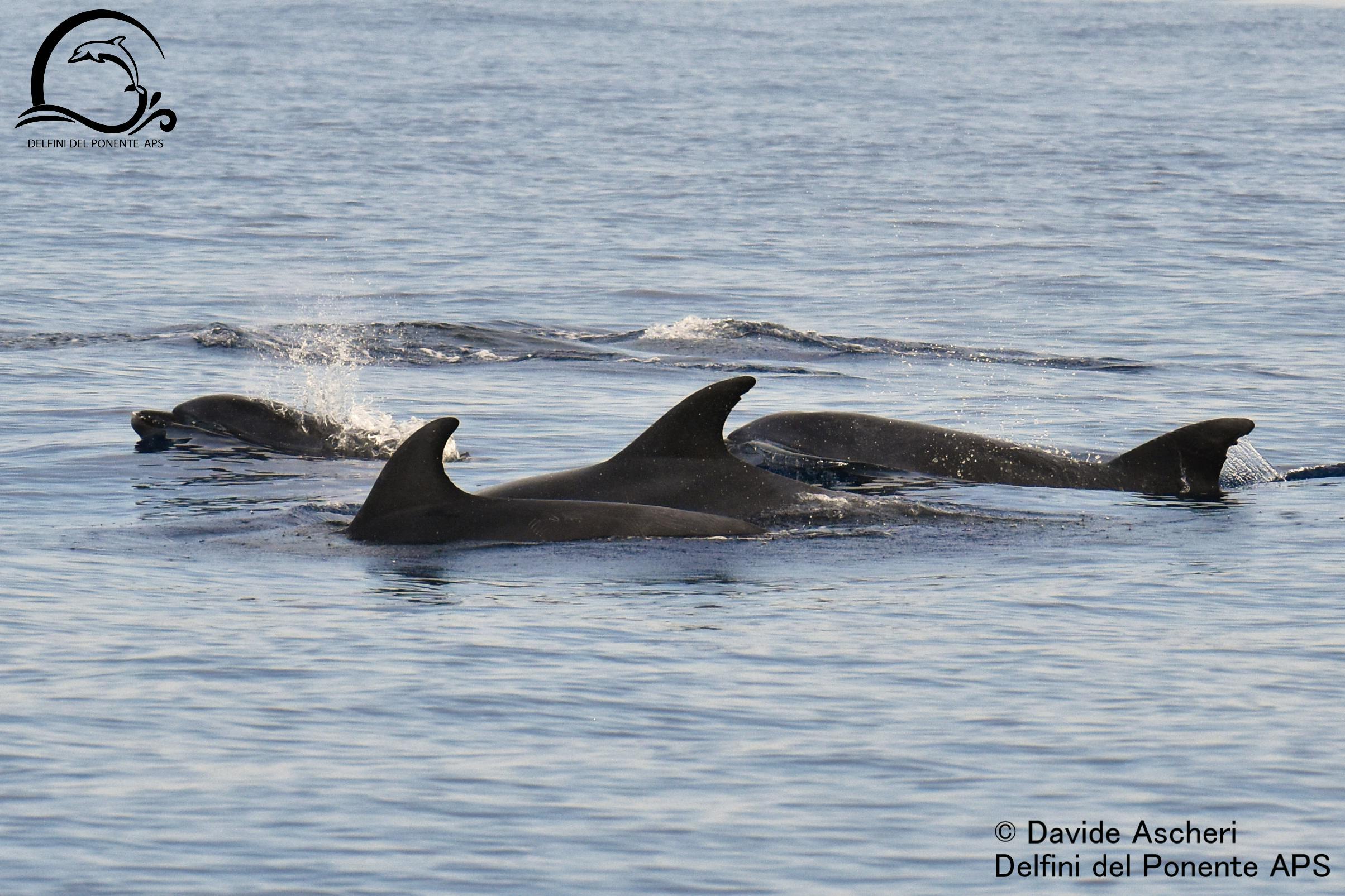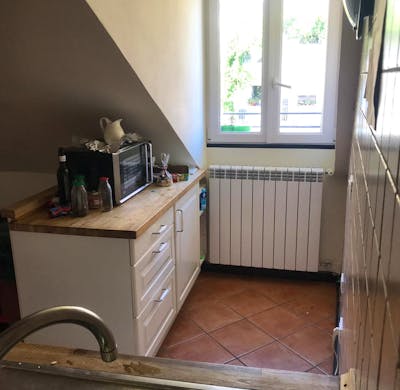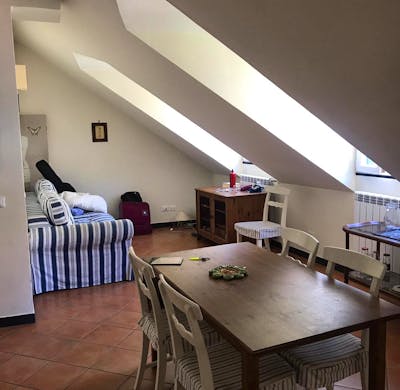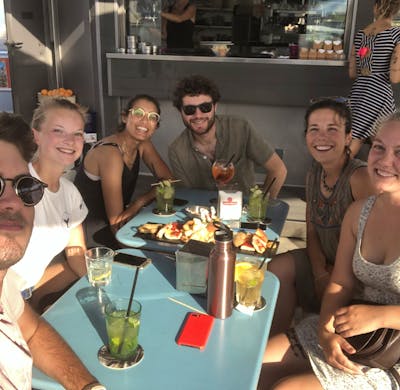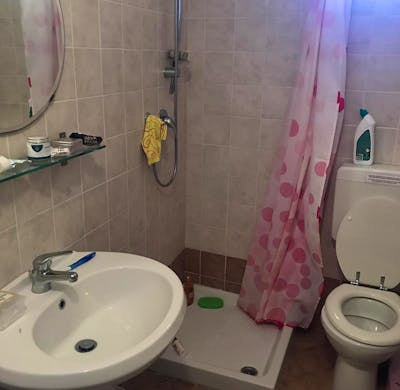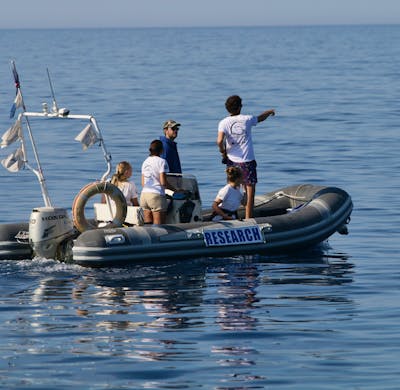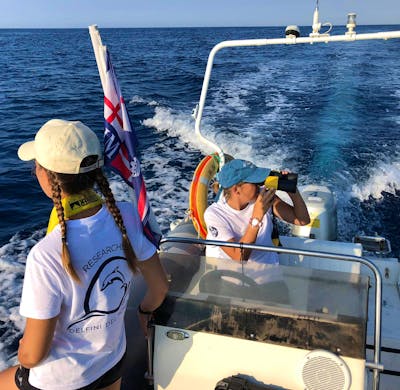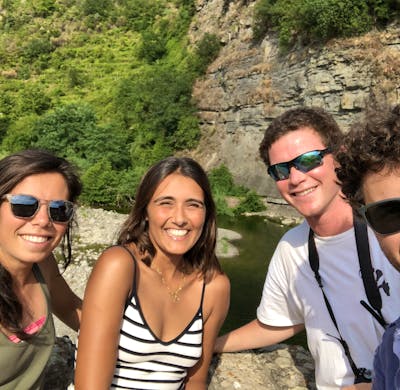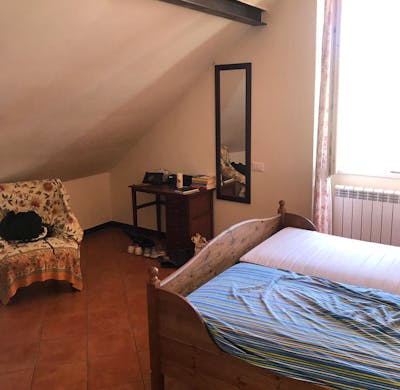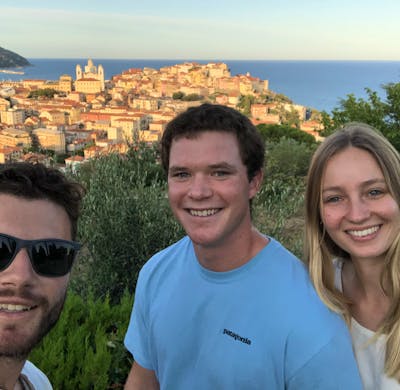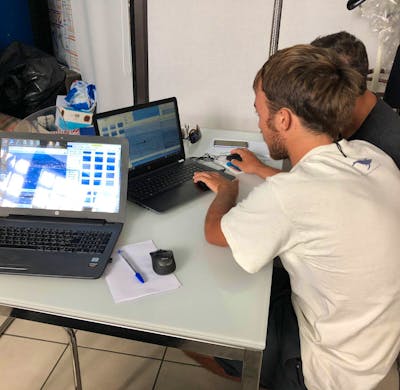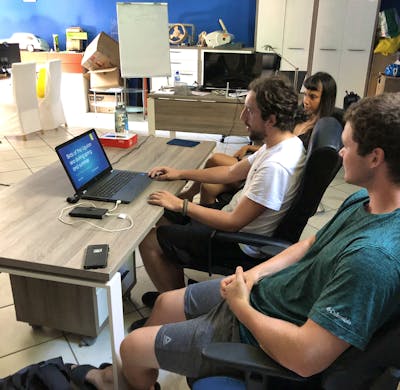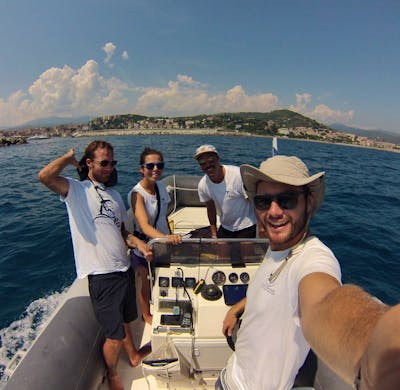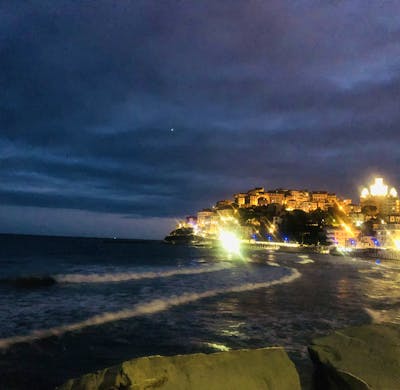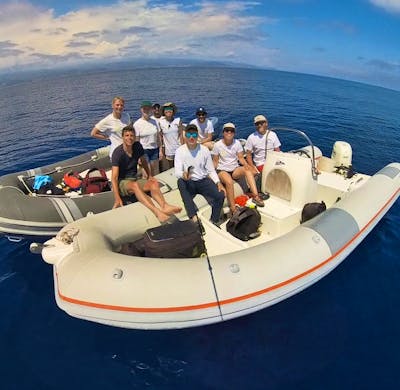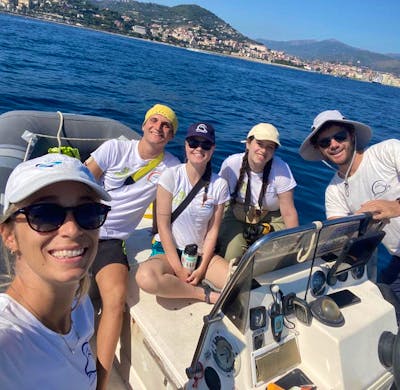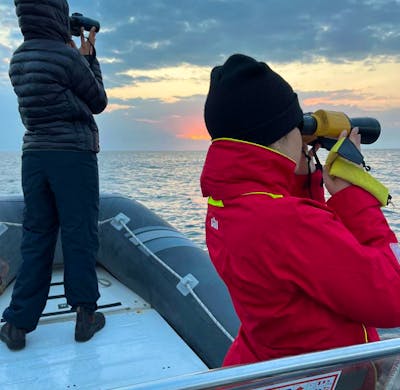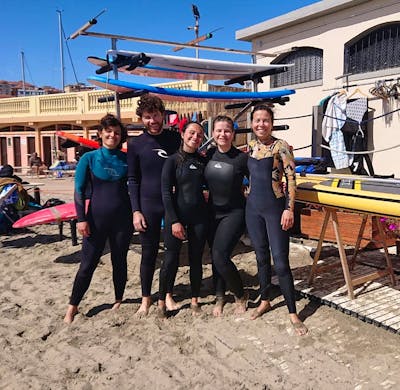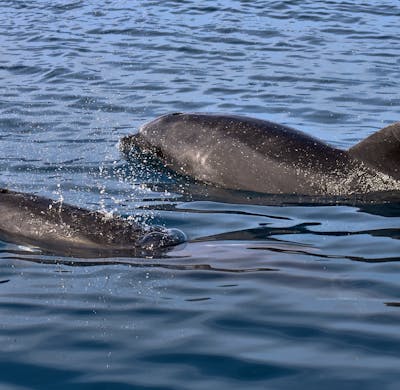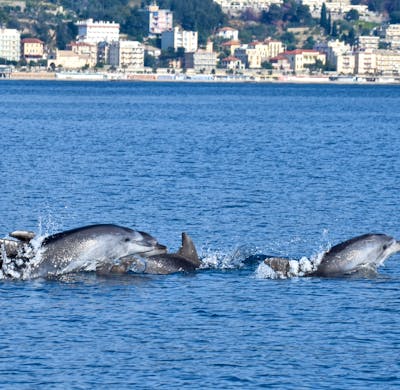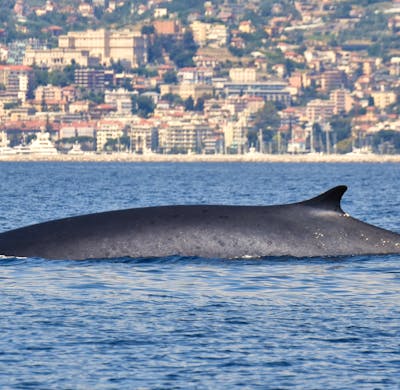The project needs a commitment of at least 30 days. Participants will assist researchers while working onboard dedicated research vessels. Interns will be involved 5 days a week, 6-8 hours/day (depending on fieldwork or lab work), also during the weekend if the weather is favorable. The program is highly flexible and with possible last-minute changes due to the changeable weather. The program is not prior scheduled and the activities for the next day are often communicated in the evening (before 21:30). The coordinators make every possible effort to switch between field and office work during the week, but this is not always possible due to weather constraints. It can happen, for example, to go to the field 4 days a week or the opposite, to stay in the office for a whole week.
Interns will be involved 5 days a week, 6-8 hours/day (depending on fieldwork or lab work), also during the weekend if the weather is good. During their free time, interns will have the opportunity to experience all sorts of activities: swimming, diving, hiking, exploring historical sites, visiting museums, sailing. This program and project is the only one carried on all year round, during all season, to collect data not only in summer but also in fall and winter while no other boats are going out.
A volunteer is very important because thanks to them we can go out on the zodiac and collect different kinds of data. The program is highly flexible and with possible last moments changes because of the weather condition. Usually, the program is not prior to scheduled and the activities for the next day are communicated usually in the evening (before 21:30). Usually, we tried to switch between fieldwork and office work in a week but this is not always possible because of the sea and weather conditions. Could happen to go out 4 days in 1 week or the opposite, to stay in the office for a whole week.
GENERAL INFORMATION
Our Team
Research and other activities will be conducted by a qualified team, which has
more than 10 years of experience in marine fauna research all around the world.
Research coordinators will oversee fieldwork and general project coordination,
while intern coordinators or research assistants will help in all aspects of the
project and coordination of the activity, housekeeping and interns’
responsibilities.
RESEARCH PROJECT
Project Background
In the Ligurian Sea, bottlenose dolphin has been extensively studied only in the
Eastern area, between Genoa and La Spezia, which represents, for a series of
features of the seafloor, a perfect habitat for this species.
On the contrary, in the Western part, no research organization or scientific
foundation has conducted studies focused only on bottlenose dolphins because,
due to the morphology of the sea bottom, sightings have always been more
sporadic than the opposite side. The continental shelf is very narrow and short
and high depths (around 2000 m) are reached close to the coast. This makes the
area suitable for other cetacean species but not ideal for bottlenose dolphins,
which tend to remain in coastal waters.
Since April 2018, the beginning of our project, we have been demonstrating that
this species is regularly present all year round also in this part of the basin with a
high occurrence and great numbers. The project is structured on an annual basis,
to obtain data not only on the distribution during the Summer but also changes
during the different seasons. Data from this study are being used to create a
baseline for a long-term project, monitoring bottlenose dolphins in this part of
the Ligurian Sea, information needed to suggest and create conservation plans for
their protection.
Marine Birds and Other Fauna Research Project
During our surveys, we collect data on the presence of other cetacean species and
on several species of marine birds, fishes and sea turtles that can be sighted. Our
database of marine fauna provides interesting information about the seasonal
presence of Mediterranean shearwaters (Puffinus yelkouan), Scopoli’s
shearwaters (Calonectris diomedea), Northern gannets (Morus bassanus),
Sandwich terns (Thalasseus sandvicensis), sunfish (Mola mola) among others.
Research Topics
- Groups and social structure analysis: to study the interactions and associations between individuals
- Abundance: estimation of the local population size
- Distribution, occurrence and movements to understand if the animals
perform movements and migrations, even seasonal, towards the
neighbouring areas.
- Identification of hot spots or areas with greater importance.
- Identification of the main threats which dolphins may incur and therefore the
creation of management and conservation plans for their protection.
- Interaction with fisheries
- Habitat modelling
- Skin lesion
- Distribution and occurrence of seabirds, with a focus on seasonal variability.
- Sea turtle monitoring (Pilot project on nests)
Methods and data collection
The project is a long-term coastal project. Data are collected during dedicated
boat-based surveys conducted from a 5.2 m zodiac equipped with a 40 hp
outboard engine, based in the port of Imperia, with 4/5 crew members. Surveys
are carried out in favourable weather-marine conditions (Beaufort ≤3) around 10
times a month. The main effort is focused on collecting images, which will be used
to identify the sighted animals, through the technique of photo-identification.
Environmental conditions, marine traffic, geographical locations and dolphins'
behavioural data are among the data collected at sea.
The study area and the Pelagos Sanctuary
The study area, which extends from Capo Noli to the France border, from the
coast to the bathymetric of 500m in depth is located in the Ligurian Sea, a basin
that shows very particular features, especially in its Western part where it reaches
remarkable depths very close to the shore.
In western Liguria, the continental shelf, which by definition extends from the
shore to 200m deep, is little expanded and in a few nautical miles the bottom
reaches more than 2500 meters in depth. The continental slope is crossed by
many submarine canyons in the area. Other important oceanographic and climate
parameters contribute to make this area unique for marine life.
Thanks to all these features the Ligurian basin is considered to have the highest
presence of cetaceans in the whole Mediterranean Sea. For this reason, in 1999,
the governments of Italy, France and the Principality of Monaco signed an
agreement that sanctions the establishment of a marine protected area, called
the International Pelagos Sanctuary.
The area, which extends for 96,000Km² houses regularly 8 cetacean species: fin
whale, sperm whale, striped dolphin, bottlenose dolphin, pilot whale, common
dolphin, Risso’s dolphin and Cuvier’s beaked whale. Mobula rays, sea turtles and
several marine bird species are regularly present too.
Programme and schedule
Participants will assist researchers while working onboard dedicated research
vessels. Interns will be involved 5 days a week, 6-8 hours/day (depending on
fieldwork or office work), and also during the weekend if the weather is
favourable. The programme is highly flexible and with possible last-minute
changes due to the changeable weather. The programme is not scheduled in
advance and the activities for the next day are often communicated in the
evening (before 21:30). The coordinators make every possible effort to switch
between field and office work during the week, but this is not always possible due
to the weather constraints. It can happen, for example, to go in the field 4 days a
week or the opposite, to stay in the office for a whole week.
Fieldwork
- BOAT-BASED SURVEYS: Interns will help and participate in collecting
different kinds of data and actively searching for animals. Usually, a survey
lasts from 5 to 8 hours, and it is required to use binoculars for the majority
of its duration. Fieldwork will help participants gain first-hand experience
in collecting data on free-ranging cetaceans and improve skills on cetacean
boat-based surveys. Surveys are weather-dependent and a number per
month is not possible to know in advance.
- BOAT MAINTENANCE: interns will regularly help with refuelling. They will
also help with the maintenance - cleaning and reorganizing - of the zodiac
during the month.
- LAND-BASED SURVEYS: only in Winter, Spring and Autumn. It consists of
the collection of environmental data, marine traffic, and dolphin presence
from two different strategic points in Imperia. Every month at least one
land-based survey aimed at the observation of seabirds and birdwatching
is scheduled.
- OPPORTUNISTIC SURVEYS: only in Summer and occasionally. Other boats
might be used as platforms for opportunistic sightings of bottlenose
dolphins. Data on all the other animals spotted are recorded too.
- SEA TURTLES BEACH MONITORING (only in July and August): Since 2021
the Ligurian region has been interested in two nesting events, one of which
was also the first ever recorded in this area. For this reason, we started a pilot project in Imperia where interns will conduct early morning beach
surveys to look for nesting attempts from sea turtles that occurred at night
(theory on track recognition will be provided beforehand). Surveys will be
quite short - 30 minutes maximum - but will require the interns to wake
up before dawn (in summer 5.30 am) to patrol the beaches before any
activity of sand raking from the beach owner is carried out. Up until now,
no turtles were ever spotted nesting in Imperia, but due to climate
changes and the 2 nests recorded recently in the region, a nesting event is
something that could take place in the near future.
Fieldwork can be scheduled at any hour, it can start at sunrise or end at sunset.
Surveys are weather-dependent- dependent and our plans can change often even
during one single day. Extreme flexibility is therefore an essential prerequisite.
Remember that, even though the sighting probability in the Pelagos Sanctuary
is very high, the chances of observing marine wildlife at sea are always
unpredictable and not always guaranteed. Boat-based surveys and the use of
binoculars at sea might cause seasickness.
Office work
Office work includes transcription of data, data entry on laptop (transcription on
Excel forms of all the data collected on the field), photo-id analysis and matching
(main activity, organise and analyse the pictures of previous sightings of
bottlenose dolphins, organise in subfolders and then match all the individuals
with our catalogue of dorsal fins), QGIS analysis (generally not in Summer,
organise the dataset to map on GIS sightings points and tracks). Classwork duties
last no longer than 6 hours a day.
During the month, lessons about different topics of marine mammals and marine
fauna (Biology, ecology, research techniques used in this topic, conservation…)
will be given by the coordinators to the interns.
At the end of the internship, each intern is required to prepare a short
presentation (around 10-12 minutes) about one of the topics of interest.
Be aware that in case of bad weather, the fieldwork will not take place, in
alternative it will be possible to spend more time doing classwork and/or our
Biologists will suggest other activities in the surroundings.
Benefits
Participants will assist and help researchers working in the field. This is a great
opportunity to get involved in cetacean research, enjoy marine biodiversity while
gaining fieldwork and lab experience, travelling, and explore the beautiful Liguria
region and help support cetacean research and conservation. At the end of your
internship, you will:
- Learn different methods for studying marine mammals in the wild and gain
practical experience in cetacean field research.
- Have a deeper understanding of cetacean ecology, biology, behaviour and
physiology.
- Be able to recognize several cetaceans, birds, reptiles and fish species of
the Mediterranean environment.
- Have a good understanding of standard procedures in fieldwork data
collection and further possible analyses that can be developed
Physical Demands
Participants must be of good health, be able to stay several hours on a boat
and often under the sun or harsh weather, have good physical fitness, be
able to lift/carry 15 kg, be able to walk without difficulty, be comfortable on
boats in nearshore/offshore waters, able to swim and work in harsh weather
conditions at times.
Boat-based surveys and the use of binoculars at sea might cause
seasickness.
Before fieldwork, a briefing about tasks and safety rules will be provided to
the interns. Interns must bear in mind that, throughout the month, both
during office and field-based activity, they will be working as part of a team
and in close proximity/small spaces. Project participants must inform our
Team of any possible physical/psychological issues, that might interfere with
these activities, during the selection process, or before their arrival if the
condition occurred after the selection.
Data Policy
All data, pictures and videos taken during our activities (Delfini del Ponente
Research Project and whale watching tours) are property of Delfini del
Ponente. It is not possible to take pictures and/or videos during our fieldwork
without a DDP member's permission!
Insurance
Participants are required to carry health insurance valid in the European
Union. Remember to check if your insurance covers medical expenses in a
foreign country. It is the intern’s choice to decide what to cover, we suggest
purchasing insurance that includes medical and emergency travel expenses,
luggage and personal effects, money, personal accidents, personal liability,
cancellation and curtailment, rescue and assistance, hijack and travel delay.
During the Association activities, volunteers are covered also by Delfini del
Ponente Insurance.
LOCATION
Liguria region
Liguria is a coastal region of north-western Italy; its main city is Genoa. Some of
the main attractions of the region are the typical landscape with hills joining the
sea, typical villages, beaches and stunning cuisine. It is bordered by France
(Provence- Alpes-Côte d'Azur) to the west, Piedmont to the north, and Emilia
Romagna and Tuscany to the east. It lies on the Ligurian Sea.
The narrow strip of land is bordered by the sea, the Alps and the Apennines
mountains. The ring of hills lying immediately beyond the coast together with
the sea account for a mild climate year-round. Average winter temperatures are
7 to 10 °C and summer temperatures are 25 to 30 °C.
Many tourists visit the region every year, with a peak during the summer
months but several are attracted by the great climate year-round and enjoy
coastal walks, hiking, climbing, diving, and inland villages.
City of Imperia
Imperia is a coastal city in the Western part of Liguria.
Imperia is well known for the cultivation of flowers and olives and is a popular
summer destination for visitors. It is a strategic place to visit the traditional
villages in the surroundings (Cervo, Dolcedo, Dolceacqua, etc). Imperia consists
of the two historical districts of Porto Maurizio and Oneglia, which lie on either
side of the River Impero that gives its name to the city.
- Porto Maurizio is located in the western part of the city and
stretches along the coastline. It is characterised by the historical
village located on a hill, with its beautiful and colourful buildings and
the typical narrow streets named ‘carrugi’.
- Oneglia is the economic centre of the city and has a very nice
harbour and several beaches.
The climate of Imperia is Mediterranean, with mild and relatively rainy Winters,
and warm and Sunny Summers.
It is important to note that the wind blows quite frequently, while the rains in the
Riviera di Ponente are quite infrequent, and follow the Mediterranean pattern
they are more abundant in Autumn and Winter, and have a minimum in Summer,
when it rains very rarely.
ADDITIONAL INFORMATION
✔ Language in Imperia: Italian. English will be the language spoken
while working.
✔ Local currency: European euro.
✔ Time zone: GMT+1/UTC. In summer, continental Europe adopts
Daylight Saving Time (from the end of March to the end of October)
and is one hour ahead.
✔ Medical care: In Imperia, there is the Hospital. Non-Italian citizens
must make sure they have valid health insurance for Italy.
✔ Travelling/Passport EU citizens only require a valid identity card to
enter Italy. Citizens from Andorra, Argentina, Australia, Brazil, Brunei,
Canada, Chile, Costa Rica, El Salvador, Guatemala, Honduras, Hong
Kong, Israel, Japan, Malaysia, Macao, Mexico, Monaco, New Zealand,
Nicaragua, Panama, Paraguay, South Korea, Singapore, Switzerland,
USA, Uruguay and Venezuela can stay in Italy for up to 90 days
without a visa, provided they have a valid passport. Citizens of
countries not listed above will likely require a tourist visa to stay in
Italy and should check with a travel or visa agency for specific visa and
entry requirements. The purpose of your visit is for vacation, holiday
or travel.
✔ Italian law and rules: the use and carriage of drugs is illegal and will
lead to severe punishment.
WHAT TO BRING
✔ ESSENTIAL ITEMS
- Passport and/or Visa
- European Health Insurance Card/Health insurance
certificate for non-European
✔ CLOTHING AND FOOTWEAR
- Clothing suitable for navigation: rainpants, long-sleeved shirts,
sweatshirts, warm underclothes (be aware that Winter temperature at
sea can be very cold).
- Rain and Windproof jacket
- Warm beanie and gloves
- Comfortable waterproof shoes for boat (with rubber soles)
- Sunglasses, sun cream
- Be aware that in every season some warmer clothes are necessary,
especially for early morning and evening surveys
✔ PERSONAL SUPPLIES
-
- Bath and beach towels
- Pillowcase, bed sheets, bedspread or sleeping bag (some warm
blankets are available in the house)
- Personal toiletries
- Medicines
- Laptop
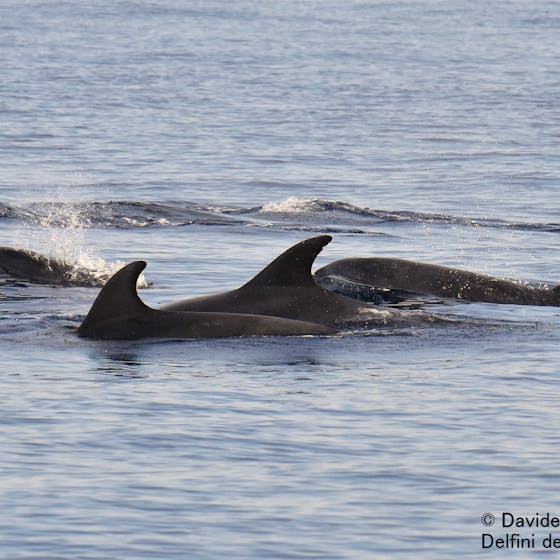
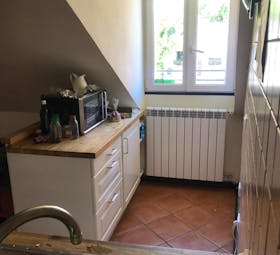
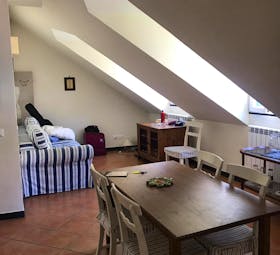
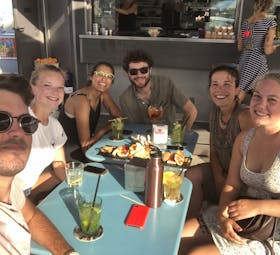
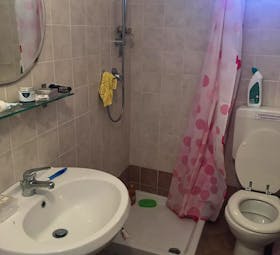
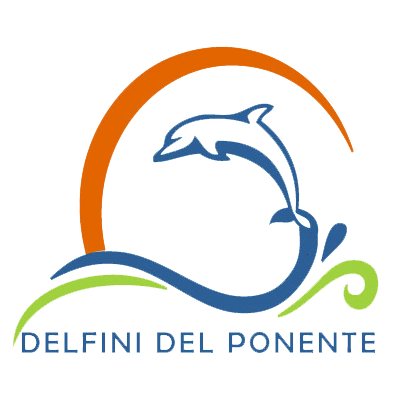
 4.9
4.9

